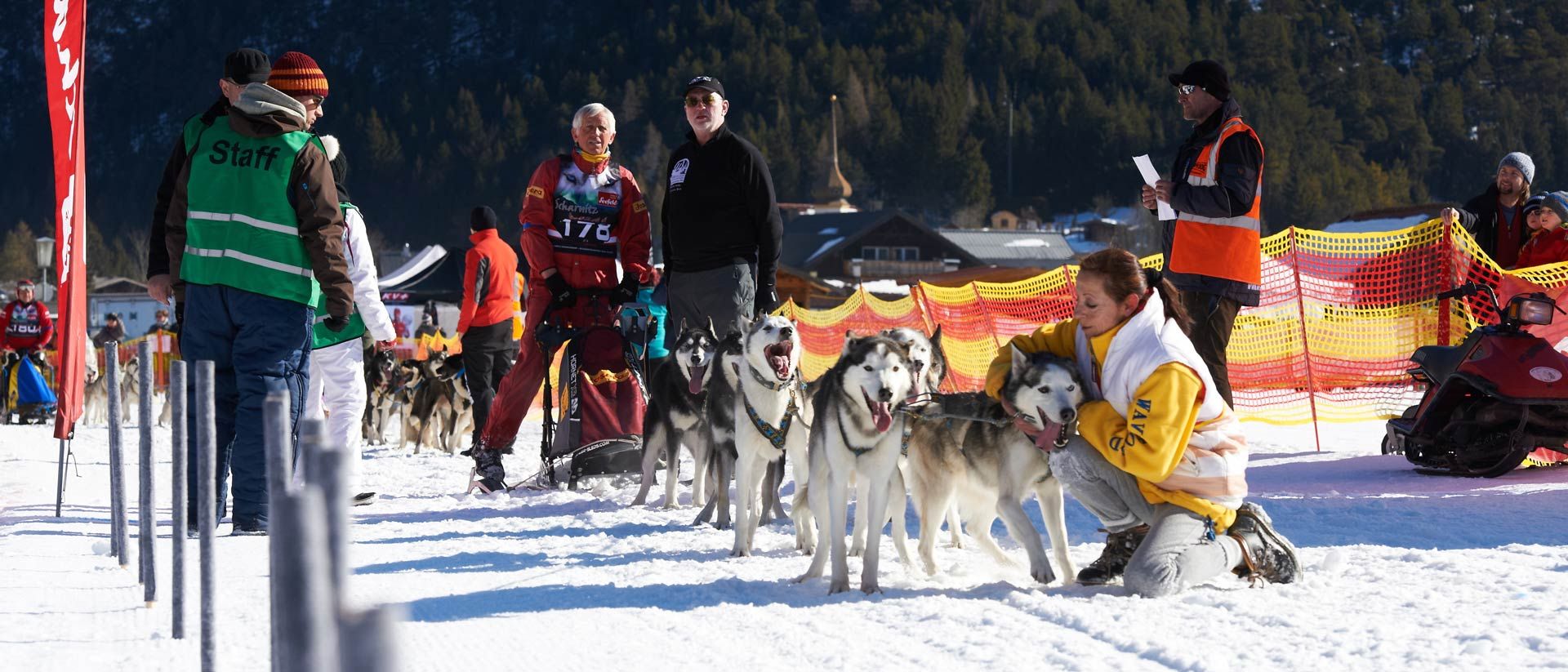
Animal Welfare
Veterinary Support for Championship Organizers
By its decision of 09.19.2015 at the GA in Frauenwald following additional rules for WM / EM was introduced:
- Charge 50,- Euro per year from every member country extra, managed as special fund, to support the organizer of an european- or world- championship, for veterinary costs.
- In the case of a deficiency in veterinary care, WSA rises 500,- Euro from the responsible organizer.
History:
Request Dr. Karsten Hesse at the GA on 09.19.2015
1) Charge 50,- Euro per year from every member country extra, managed as special fund, to support the organizer of an european- or world- championship, for veterinary costs.
2) In the case of a deficiency in veterinary care, WSA rises 500,- Euro from the responsible organizer.
Substantiation:
During my time as official WSA Vet/DCO I realized three championships with good veterinary care (proper pre-race vet controls, good duty (minimum 2 Vets) during the races, good veterinary facilities on the race ground, 24 h accessibility. In my opinion this should be the normality. Unfortunately I made 2 experiences with absolute inadequate veterinary care (no Vet on the ground, underequipped staff, no experience with sled dogs, non-availability. In my opinion this is the result of false economy and this is at least at the expense of our dogs and the reputation of the sled dog sport. In this way the community of WSA is able to offer the organizer of the event round about 1200,- Euro extra for veterinary controls.
History
Request Dr. Karsten Hesse at the GA on 09.19.2015
- Charge 50,- Euro per year from every member country extra, managed as special fund, to support the organizer of an european- or world- championship, for veterinary costs.
- In the case of a deficiency in veterinary care, WSA rises 500,- Euro from the responsible organizer.
Substantiation:
During my time as official WSA Vet/DCO I realized three championships with good veterinary care (proper pre-race vet controls, good duty (minimum 2 Vets) during the races, good veterinary facilities on the race ground, 24 h accessibility. In my opinion this should be the normality. Unfortunately I made 2 experiences with absolute inadequate veterinary care (no Vet on the ground, underequipped staff, no experience with sled dogs, non-availability. In my opinion this is the result of false economy and this is at least at the expense of our dogs and the reputation of the sled dog sport. In this way the community of WSA is able to offer the organizer of the event round about 1200,- Euro extra for veterinary controls.
Dog Transport Guidelines
Dog transport guidelines vers. 1.1
The size of the crates in which the dogs are being transported in is generally based on the size of the dogs. Dogs must be able to stand, lay down lengthwise and rotate. If two dogs are being transported in the same crate, the width of the box must be adjusted. The crate must be ventilated properly. Wire mesh crates that are open on all sides are not allowed. Top, bottom and three sides of a crate should always be closed. If single dogs are being transported, for example, in the rear of an estate car, wire mesh crates are allowed. When planning the construction of crates remember that bedding has to be added, which will reduce the standing height. The bedding / litter should be clean and dry and must be changed after soiling.
If a trailer is being used, make sure that the opening to the outside is protected from spray and rainwater and that the dogs are not exposed to direct wind. The exhaust fumes from the towing vehicle must be guided so that they cannot penetrate into the trailer. The crates must be reasonably well ventilated.
Information regarding the WSA World Championships in Frauenwald
Before teams are allowed to enter the stake out area, they will be directed to a check-in zone where all teams will be checked by a veterinary and animal welfare for the following.
- Dogs carrying infectious diseases such as kennel cough, diarrhoea, etc.
- Compliance with the crate rules as outlined in the dog transport guidelines
- Trailer ventilation / exhaust paths
Competitors who arrive with dogs carrying infectious diseases will not be allowed to participate in the race and will be sent home. Please bear in mind that if two teams are sharing one vehicle, both teams will be sent home.
Competitors whose transport conditions do not comply with the WSA guidelines will not be allowed to participate in the World Championships (dogs that have travelled for example for one or two days to arrive at the venue and then have to spend the following 6-8 days in crates that are too small will not be able to recover sufficiently during their rest periods before and after the race).
Should competitors/ mushers have doubts about the size and design of their crates, photographs can be submitted to the WSA ahead of time for feedback.
These reforms are designed to protect all dogs participating in the race.
Ethics Paper
Dog Powered Sports
A dog’s wellbeing and health prohibits any activities that negatively affect its life expectancy or quality of life. The goal is to reach the best possible harmony between owner and dog.
Ethical principles:
The responsibility for a dog starts on the first day of ownership and lasts until the end of its life. The life expectancy of a healthy, medium to large dog averages between 12 to 14 years.
The top priority is to preserve and promote the physical and psychological health of the dog. In addition to the basic needs for food, care and excercise, it is important to provide an environment free of abuse and violence.
In addition to he basic needs of food, care and exercise are considered to be normal behaviours for having a dog, along with non-violent occurrences with the dog.
Regular health checks, vaccinations and treatment of internal and external parasites are part of responsible dog ownership. Care must be adapted to the dog‘s natural needs and both social and psychological stimulation is important for maintaining physical and mental health.
When deciding how many dogs to own, it is important to consider how much money and time can be dedicated, and what zoning laws and living situation will allow. Keeping kennels the size one can care for properly will allow to avoid future problems.
The basic education of each dog is important for its welfare and safety.
Runs or pens must be large enough to allow dogs to perform most behaviors that are typical of their species. Good weather protection must be provided. Chain attitude is rejected. The dog gor dogs should have his/her kennel area accessible with the ability for he/she too move around accordingly and be able to stay occupied. The dogs urge to move, the ability to learn and the other ways of a dogs being must be encouraged and supported. Alone with that, a dog must have plenty of activities to get sufficient exercise; for example letting the dog free run. For this purpose, the activities mentioned above, should be to put as a standard for the basic training for a dog.
An exellent way of staying busy and active ist he sled dogging sport as well as the various other possibillities of dog sports in general.
It is important to properly train and condition dogs and never push them to perform beyond their capabilities. Usage of performane-enhancing drugs and harmful training methods are strictly prohibited.
A responsible Mushers will participate in events only with healthy, well trained and conditioned dogs. Ambition or financial motives should never overrule animal welfare.
Above all, it is unthinkable to shorten the life of a dog for financial reasons, lack of space or because the animal’s performance is not up to expectations.
The killing of vertebrates is regulated by the Animal Protection Act of each country and clearly prohibits killing for above reasons.
Ethical people will grant their dog a pleasant last stage of life according to its age and health. This demonstartes their gratitude towards the animal for being a reliable friend and partner over many years.
"Unfortunately, in some countries it is permitted to keep dogs on chains. Nevertheless, this practice should be rejected by all sled dog organizations nationally and internationally. Sled dog organizations should engage with mushers practicing this with the aim to abolish this practice."

